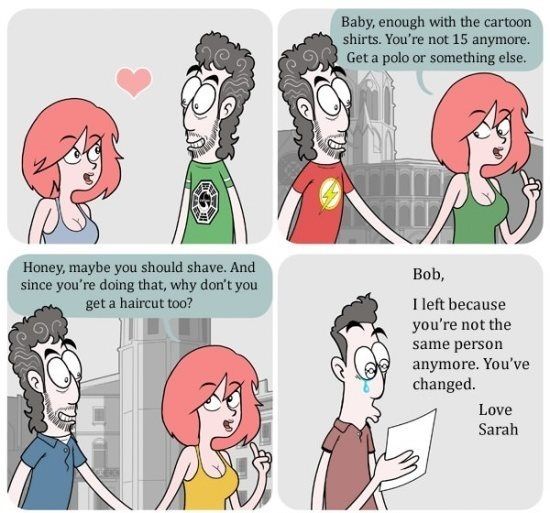Tonight, if I go out, I will get to see the greatest display of stagecraft all year as thousands of men pretend to love thousands of other people. Most of what they do will be a ruse, a play, because I don't think most people know how to love anyone, themselves included. Loving someone includes loving them he way they are or loving them rather than what they do, what they have, how they treat you, etc. When we love secondary characteristics, we don't really love them; we love ourselves.
Yesterday, while I prayed, I first felt a little sheepish for mentioning things of trivial and transitory nature. As I berated myself, something I told someone dear to me returned to my own mind, and I remembered that I tell people that it's appropriate to pray for whatever's on your mind. If it's important to you, it's important to God because you are important to God. He may regard it as trivial or trite, but He values you, and so the thoughts and ideas and desires you have are important to Him.
In my interactions with my own parents, I saw this. I am sure my parents grew bored with visits to ghost towns, battlefields, science fairs and coin shops. However, I still visit ghost towns, places of historical interest, work in science, and participate in numismatics. None of these things interested my parents particularly, because they were inclined towards different pursuits, but my father took us out of our way to do things and see things that interested me because he cared about me.
Many people predicate their relationships foremost on shared interests, when it is sharing interest in each other that really matters. We are well when we are true to ourselves, and healthy relationships consist of partners who are interested in the other's activities because they are interested in each other. I courted a woman once who didn't really care much about Star Trek, Crusaders, Origami, or learning French. However, she asked about them because she cared about me, and because she knew I was passionate about them, she knew that it would help us grow closer when she cared about what mattered to me.
All too often, we attempt to change people to validate our own preconceived notions. We all know that it's a paradox when people claim, "I love you. You're perfect. Now change." People are who they are, and it does nobody any service to compel them to change against their will. Besides, as long as what they do is legal, ethical, and moral, what does it really matter if they love paintball, poetry, or paper mache? This attitude evinces that we love their behavior, their status, or their belongings. A lot of people claim they love you or someone else, but when the flowers die, the chocolates are digested, or the rubber meets the road we may find that they love something else.
Some time last fall, I came across the following cartoon that illustrates the love canard.

There are people out there who insist that we change to validate them. If they love us, they love us if and only if we do what they ask or conform in some way to their expectations. The problem with that is that in meeting those terms, we become someone else, and all too often they then leave. After they fashion us into what they want, we are no longer what they loved in the first place, and the hirelings flee, off to "fix" the next person they find. People who love you will love you for all the other things you are and do. They will love their dork, their Trekkie, and their partner's stubborn belly fat. If they prove otherwise, they don't really love you. I don't know what it is, but God loves us for who we are, not what we do, what we have, or what play we stage for the somnambulent public.

There are people out there who insist that we change to validate them. If they love us, they love us if and only if we do what they ask or conform in some way to their expectations. The problem with that is that in meeting those terms, we become someone else, and all too often they then leave. After they fashion us into what they want, we are no longer what they loved in the first place, and the hirelings flee, off to "fix" the next person they find. People who love you will love you for all the other things you are and do. They will love their dork, their Trekkie, and their partner's stubborn belly fat. If they prove otherwise, they don't really love you. I don't know what it is, but God loves us for who we are, not what we do, what we have, or what play we stage for the somnambulent public.






No comments:
Post a Comment